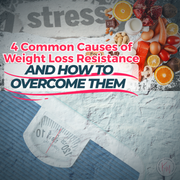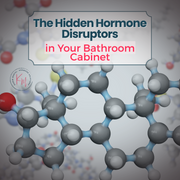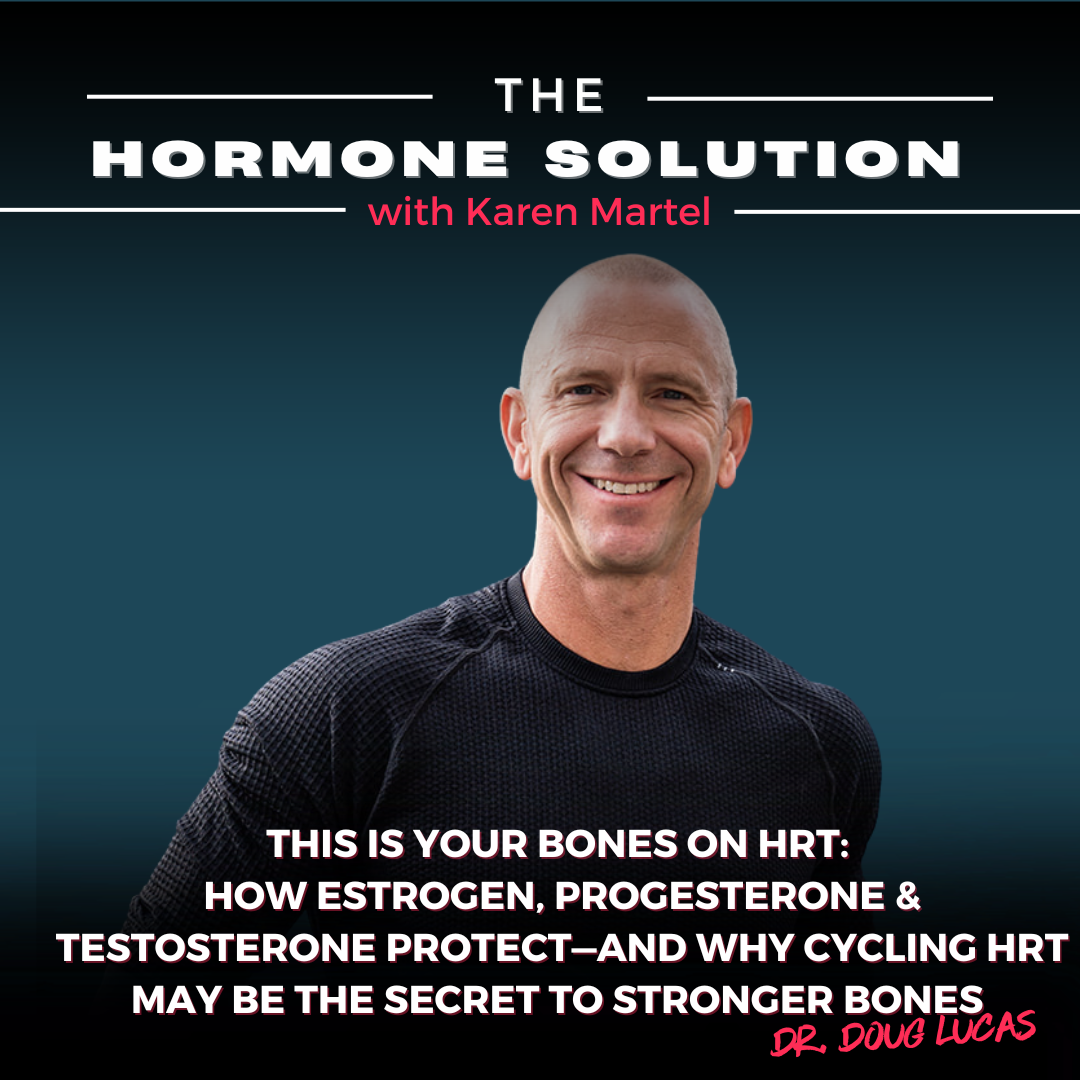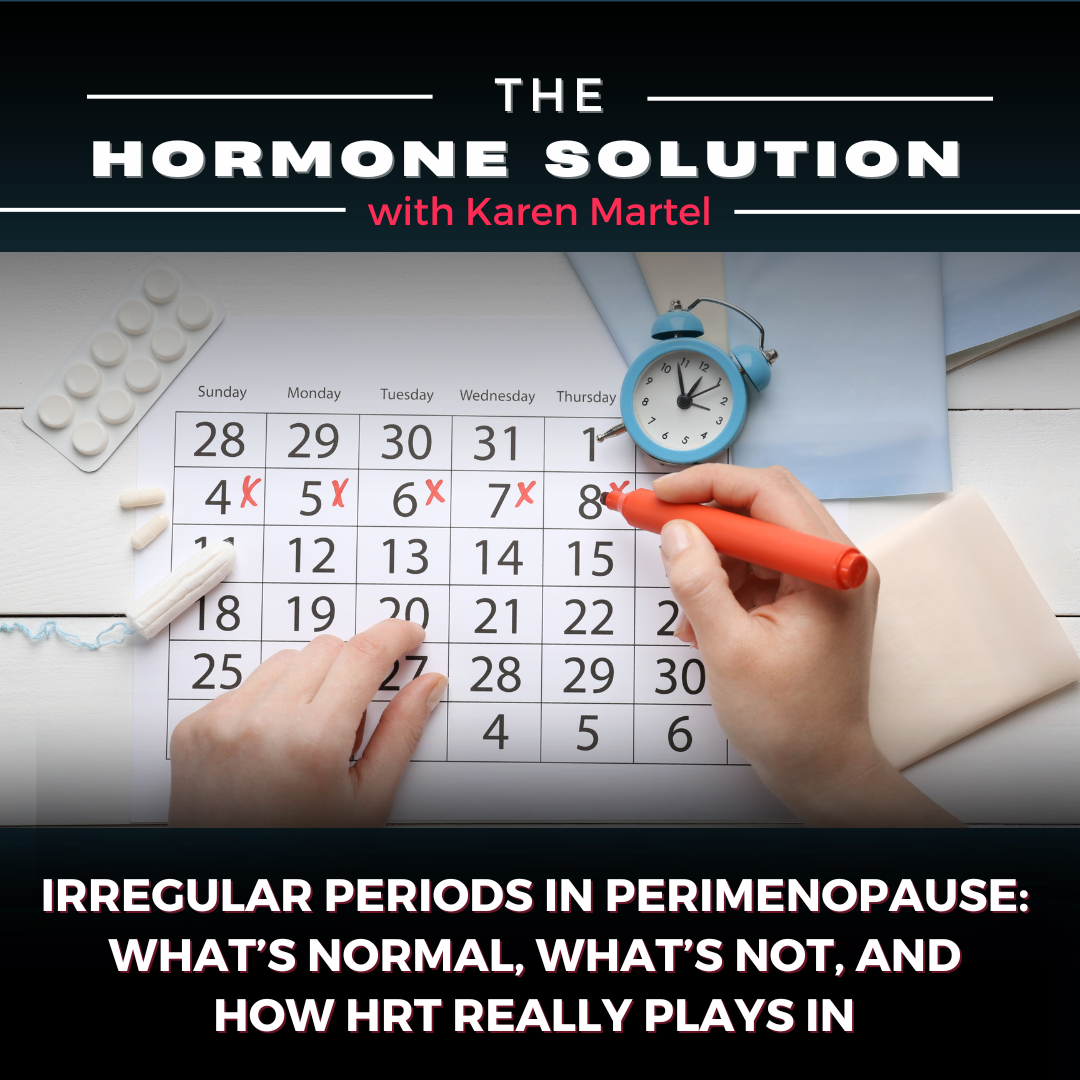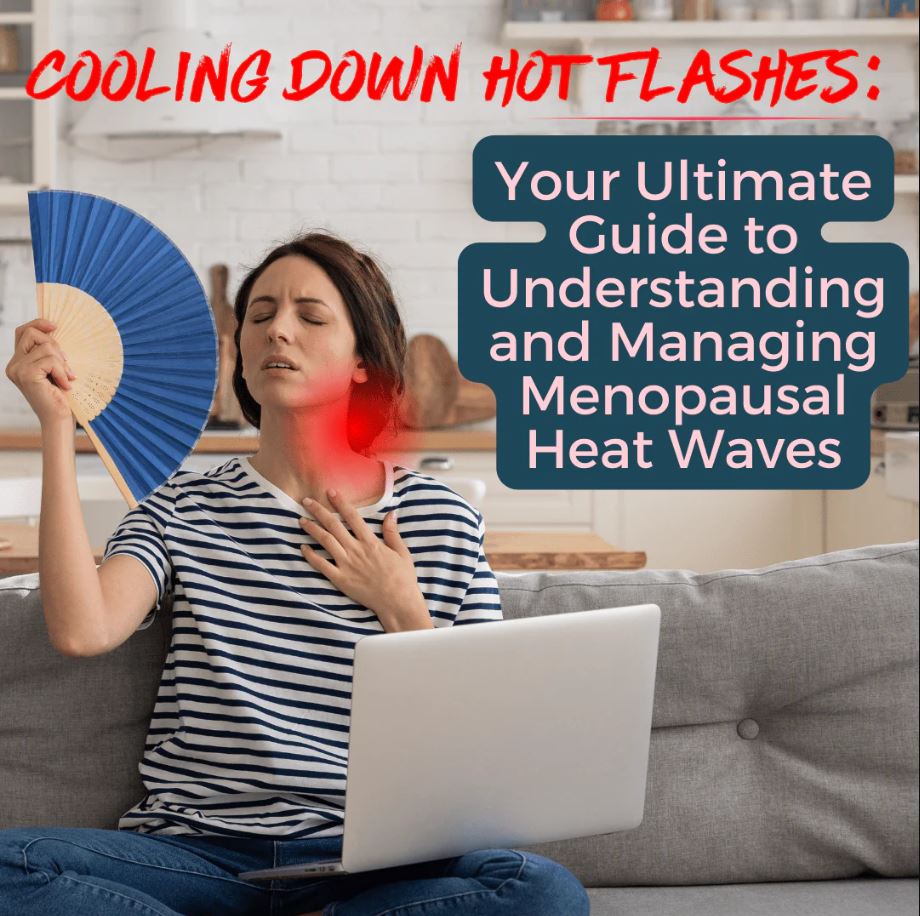
Cooling Down Hot Flashes: Your Ultimate Guide to Understanding and Managing Menopausal Heat Waves
Hot flashes—those pesky little heat waves that love to strike when you least expect them, whether you’re in the middle of a meeting or just trying to catch some sleep. About 80% of us go through this during menopause, and believe me, I’ve been there. Day and night, I was hit hard by those fiery surges. But here’s the good news: I’m happy to say I squashed them years ago, and now I rarely get them anymore. You can get there too!So, what’s the deal with these hot flashes? As estrogen levels drop during menopause, your brain throws a bit of a tantrum, triggering those sudden surges of heat. But don’t sweat it—literally! We’re going to dive into the science behind hot flashes and, more importantly, how you can manage them and get back to feeling like yourself.What exactly are “Hot Flashes”? So, what exactly is a hot flash? Picture this: your body suddenly decides it’s time to crank up the internal thermostat, and before you know it, you're feeling like you’ve been dropped into a sauna. A hot flash is your body’s way of reacting to the drop in estrogen during menopause. The brain, specifically the hypothalamus (the body’s thermostat), gets a bit confused and starts thinking you’re overheating—even when you’re not. This sets off a chain reaction: blood vessels near your skin's surface widen to cool you down, your heart rate might speed up, and voilà—you’re left sweating bullets out of nowhere.
Hot Flashes and Your Heart Interestingly, there’s more to hot flashes than just feeling like you’re suddenly on fire. Research has shown a connection between frequent or intense hot flashes and an increased risk of heart disease. The exact link isn’t fully understood yet, but it’s believed that the same vascular changes that cause hot flashes might also be affecting your heart health. When estrogen levels drop, it can lead to changes in your blood vessels and cholesterol levels, which might increase the risk of cardiovascular issues. So, while hot flashes are uncomfortable, they could also be a signal to pay closer attention to your heart health during menopause.
When Do Hot Flashes Start? Hot flashes often start during perimenopause, the transition to menopause when your estrogen levels begin to fluctuate. For most women, they kick in between ages 45-49, but they can start earlier, even in your early 40s. Some women experience them after 50, and a small percentage start before 40. It's all part of the normal range!
How Long Do Hot Flashes Last? If left untreated, hot flashes can last quite a while—on average, about 7 to 10 years. For some women, they can even persist into their 70s or beyond. Of course, everyone's experience is different, but dealing with them for that long can be a real challenge. That's why finding effective ways to manage and reduce them can make a big difference in your quality of life.
Common Hot Flash Triggers Hot flashes can be a real mystery, often sparked by different activities and environments. What sets off a hot flash for one person might not even faze someone else, and that’s totally normal. But let’s dive into some common triggers that both patients and experts have noticed—these could help you pinpoint what might be causing those sudden sweats.
1.Heat Hot environments like a car or office, or even excessive exercise, can trigger hot flashes. But keep moving—exercise is still great during menopause!
2.Caffeine Caffeinated drinks might set off hot flashes for some people ( this is one of the worst culprits for me!) Watch how coffee, tea, and chocolate affect you.
3.Spicy Food Spicy foods, thanks to capsaicin, can trick your body into feeling overheated, which might lead to sweating and hot flashes.
4.Alcohol Alcohol’s impact on hot flashes varies. Some studies link it to increased risk, while others don’t. Pay close attention to how it affects you.
5.Stress Stress and anxiety are often connected to hot flashes, likely due to cortisol. Managing stress can help with both hot flashes and other menopause symptoms.
Non Hormonal Solutions for Hot Flashes Managing hot flashes without hormones is definitely possible, and there are a variety of strategies that can help keep those heat waves at bay. Here are a few tips:
- Stay Cool: Dress in layers, so you can easily remove clothing when a hot flash strikes. Keep a fan nearby, and try cooling pillows or bedding to help with night sweats.
- Watch What You Eat: Spicy foods, caffeine, and alcohol can trigger hot flashes for some women. Keeping a food diary might help you identify and avoid your personal triggers.
- Manage Stress: Stress can be a big trigger for hot flashes. Practices like deep breathing, meditation, or yoga can help you relax and reduce the frequency and intensity of hot flashes.
- Stay Active: Regular exercise can help regulate your body temperature and reduce the frequency of hot flashes. Just be sure to stay hydrated and avoid overheating during workouts.
- Try Natural Supplements: Some women find relief with herbal remedies like black cohosh, evening primrose oil, or soy isoflavones. However, it’s always best to check with your healthcare provider before starting any new supplements.
- Stay Hydrated: Drinking plenty of water can help your body regulate its temperature and might reduce the severity of hot flashes.
- Mind Your Environment: Keep your living space cool, use fans, and sleep with lightweight, breathable fabrics to minimize the discomfort of hot flashes.
- Cut Back on Alcohol: Alcohol can be a major hot flash trigger for some women. Reducing or eliminating alcohol from your routine might help keep those sudden heat surges in check. Plus, it has other health benefits too!
- Invest in a Sleep Eight Mattress cover. The Eight Sleep mattress cover is a high-tech solution designed to help improve your sleep quality by addressing temperature regulation. It’s equipped with advanced technology that allows you to control the temperature of your bed through a smartphone app. In my own experience, using the Eight Sleep mattress cover has been a game-changer. I used to struggle with intense night sweats that disrupted my sleep and left me feeling exhausted. Since incorporating this mattress cover, I’ve been able to maintain a cooler and more consistent sleeping temperature. As a result, my night sweats have significantly decreased, and my overall sleep quality has improved. It’s made a real difference in how rested and refreshed I feel each morning. Go to www.eightsleep.com/hormone and get $200 off plus free shipping on the Pod Cover by Eight Sleep.
These tips can make a big difference in managing hot flashes naturally, helping you stay comfortable without the need for hormonal interventions.
How Are Hot Flashes Treated?
- Menopausal Hormone Therapy
Menopausal hormone therapy (MHT) is a leading treatment for hot flashes. It uses estrogen (via patches, creams, or pills) to balance your hormones and ease symptoms. Progesterone isn’t just for protecting your uterus—it can also be a helpful ally in reducing hot flashes. While estrogen is often the go-to for managing menopausal symptoms, progesterone has its own benefits. It can help balance out estrogen levels and stabilize the hormonal fluctuations that contribute to hot flashes. By addressing these hormonal imbalances, progesterone may help reduce the frequency and intensity of those annoying heat waves. Always
MHT works for about 80% of people, usually providing relief within 1-2 weeks and helping with other menopause symptoms too. You can check out our over the counter (no prescription necessary) clean, bioidentical line of hormone creams here: karenmartel.com/shop
- Non-Hormonal Medications
If MHT isn’t an option, SSRIs and SNRIs—medications for depression and anxiety—might help reduce hot flashes. They work for up to 60% of people by boosting serotonin. Paroxetine (Brisdelle) is FDA-approved for hot flashes, but others are used off-label.
Understanding the science behind hot flashes and exploring both lifestyle changes and potential treatments can empower you to take control and find relief from these pesky symptoms.
Stay cool!!

Find Karen Martel on Apply Podcast
Karen Martel is a Certified Hormone Specialist and Transformational Nutrition Coach dedicated to empowering women through their health journeys.
As the host of the popular podcast The Hormone Solution, Karen tackles the complexities of hormonal health, weight loss resistance, and the challenges that come with perimenopause and menopause.
Her mission is to disrupt outdated narratives surrounding women's health, providing reliable information and practical solutions that help women reclaim their vitality.
Tune in to discover how to embrace life's stages while enhancing overall well-being.


